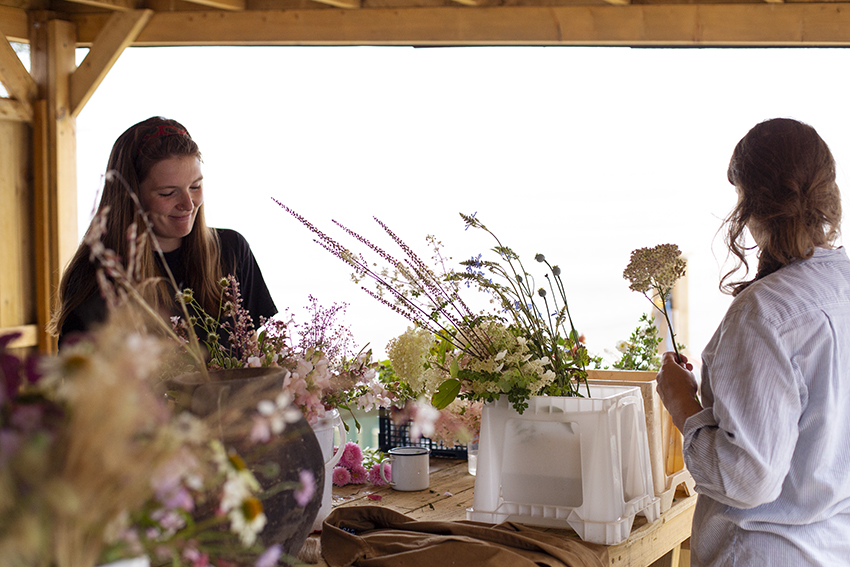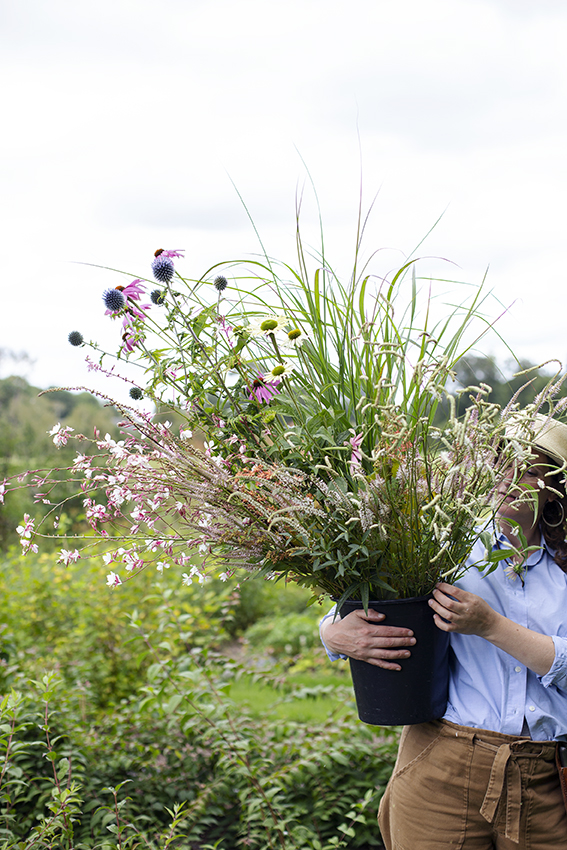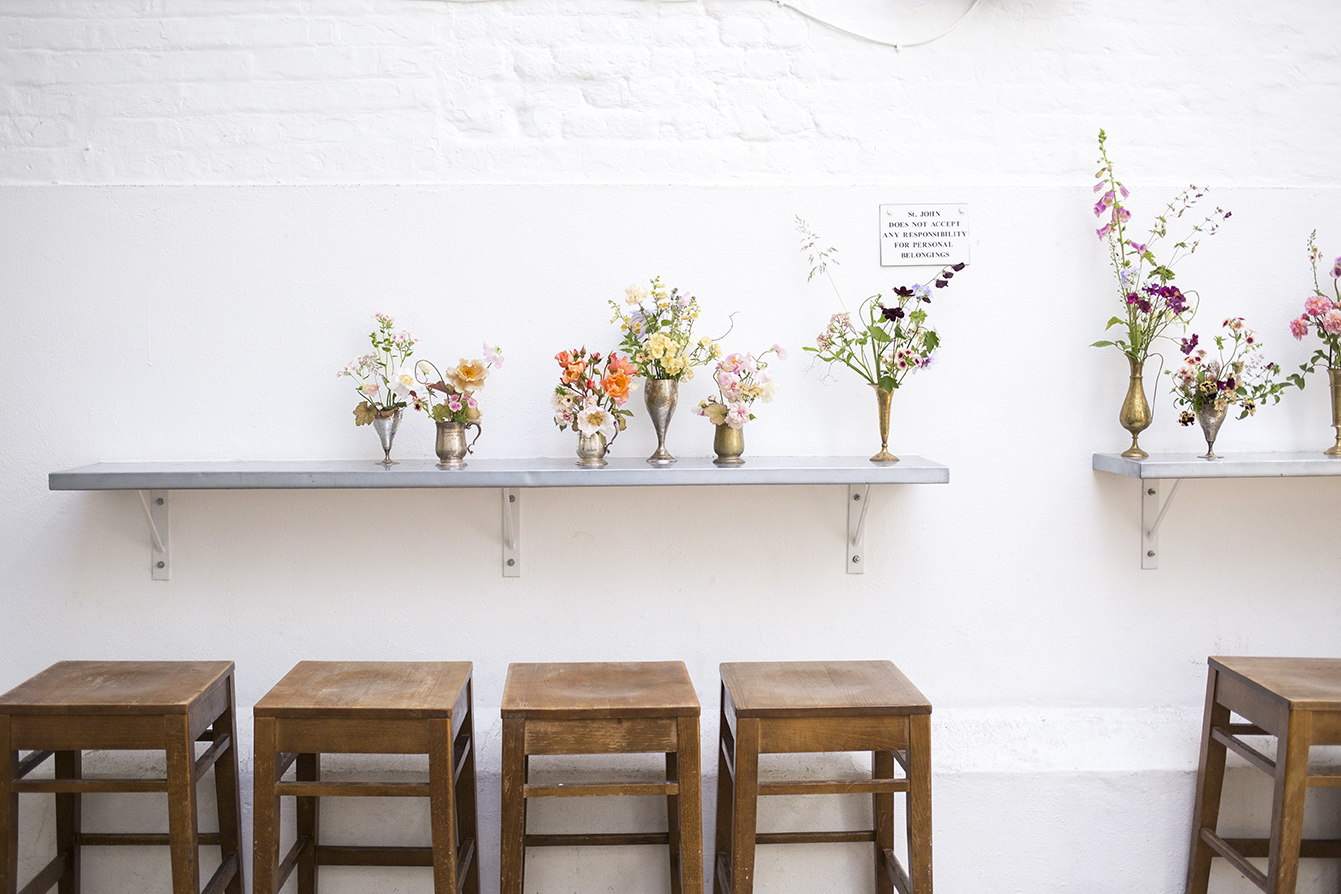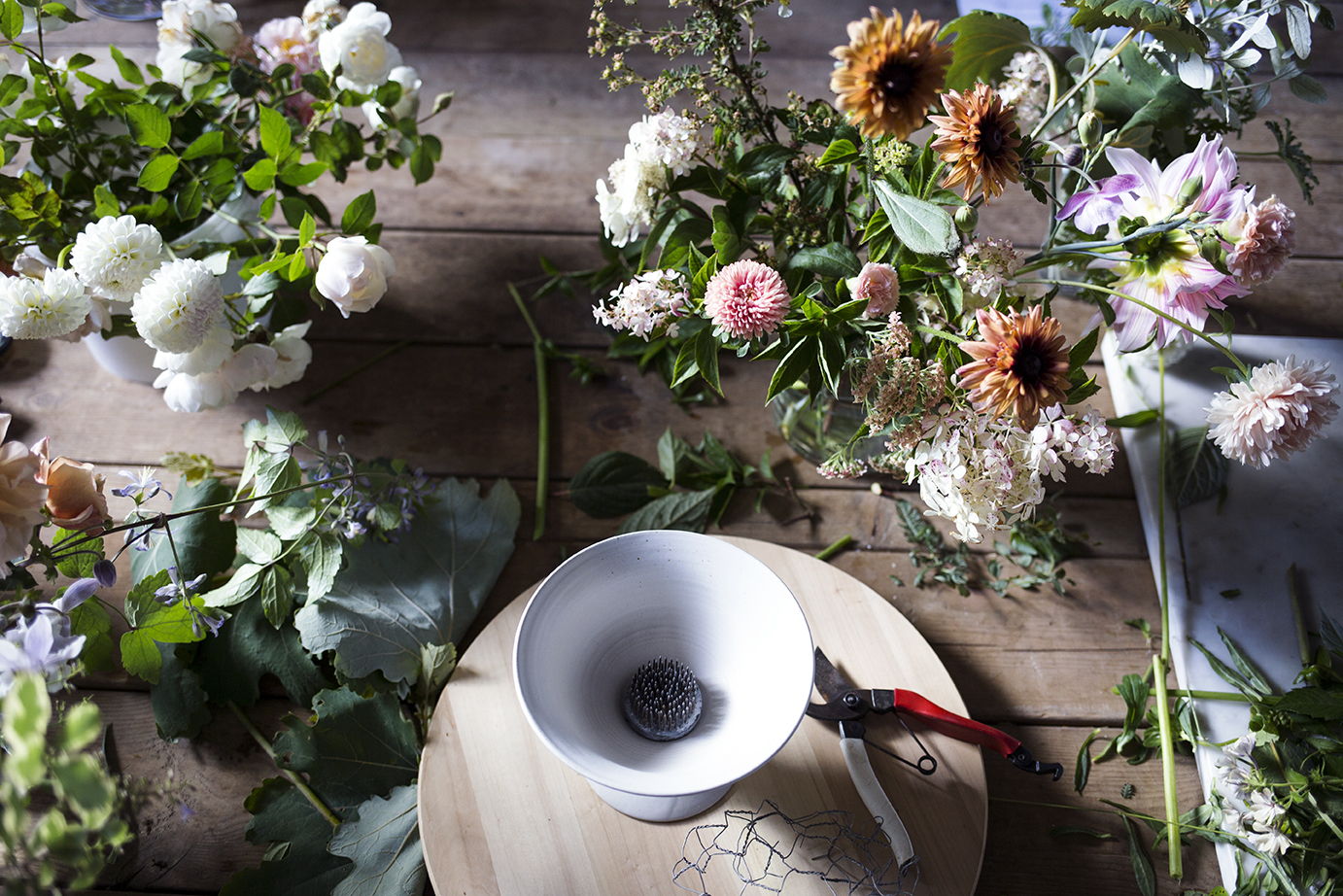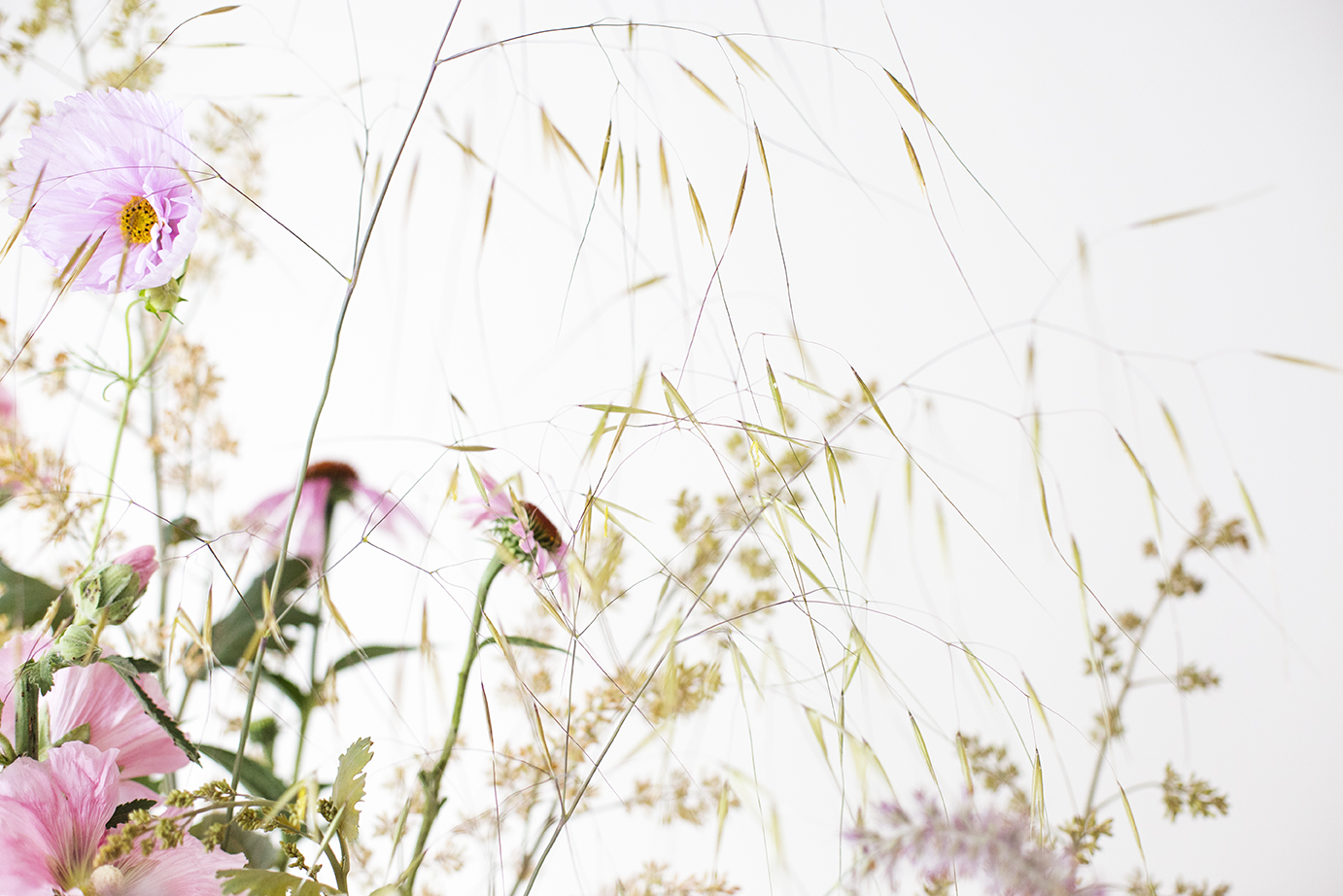Jessica Lister, Aesme, UK.
Sisters Jess Lister and Alexandra Nutting run the highly regarded Aesme Studio in London. Their work is strictly seasonal and their distinctive aesthetic demonstrates a deep connection with their materials. This is no surprise given that the siblings have established a cutting garden in Hampshire where they grow many of their own flowers. We talked to Jess about Aesme’s philosophy and thoughts on driving change in the industry.
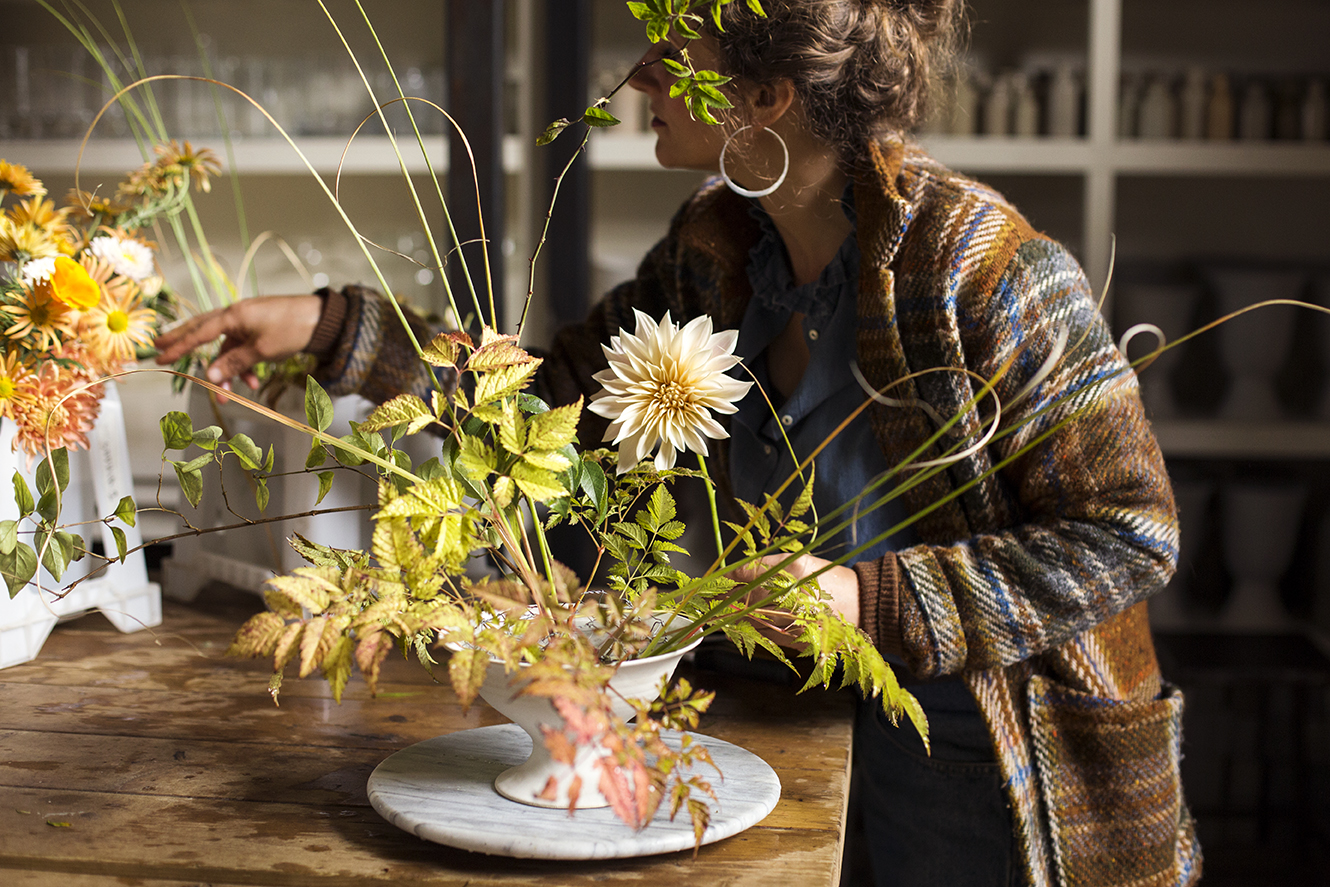
Work history
Alex took up arranging flowers after discovering the beautiful photographs and writing of several US floral designers who were blogging about their work – this was before Instagram had really taken off. The emphasis of their work was on naturalistic, gardeny arrangements using locally grown ingredients – a world removed from ‘floristry’ as she knew it. As a hobby (for want of a better word) it served as a calming, creative outlet from her job and ultimately led down a road of discovery – an internship in New York, several years of practise and learning, then the start of Aesme Studio with me.
Alex introduced me to floristry – I had never been remotely interested or aware of it before. We are sisters as well as very close friends and had always wanted to run some kind of business together – it happened to be flowers! It’s been an incredible journey so far and has infiltrated every aspect of our lives, from our homes to how we spend time together as a family.

Managing during COVID
2020 and 2021 were very strange years.
In the beginning there was an element of freedom – making arrangements for fun, catching up on rest, gardening. But we run a business specialising in weddings and events on the one hand, and running workshops for primarily international students on the other. The reality was that both arms of our business were pretty swiftly cut off almost overnight.
This was a huge struggle to manage financially. Our one silver lining was that we had time to record a series of online classes which had been in the pipeline for a while. Our work ethic and general temperament is generally to ‘keep on truckin’’, but repeated lockdowns and travel restrictions made this increasingly difficult. It had a big effect on our positivity and feelings about the future. After five years or so of working incredibly hard to establish the business, it was demoralising to feel as though we were starting from scratch all over again.
We probably haven’t fully realised the effect it has had on us just yet, or how it has changed the course of where we are going. But we definitely feel that it has made us more determined to keep learning and developing as much as we can, and to push our creative boundaries. We’re still madly in love with flowers, which is the main thing.
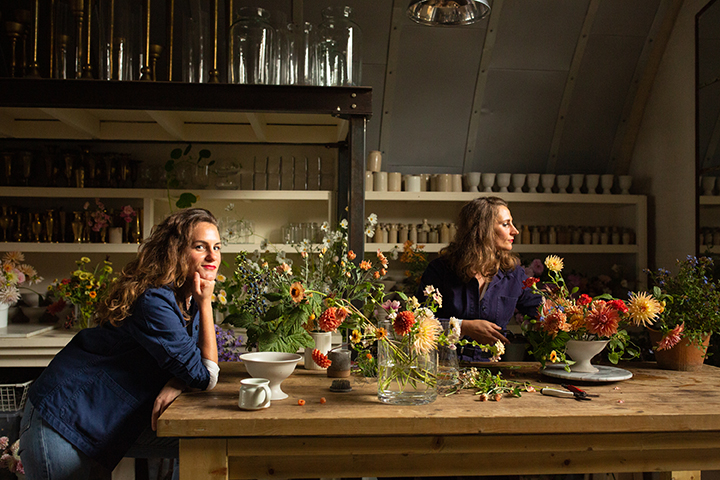

What part of the job brings you the most inspiration to stick with it?
The graft is everything! The hardest tasks are the ones that bring the most satisfaction. Being continuously in the ‘process’ of something is a great state to be in. Hearing the girls in the studio talking about the flowers and asking the names of something they haven’t seen before. When I’m cutting flowers early in the morning at the farm I hold my breath because I’m working at double speed and trying to get everything done in half the time and then I remember to take a long, deep inhale of the garden air and it feels incredible. I get to do that every week.
I think we stick with it because we are addicted to the hunt for materials, to the creative process, to the beauty.
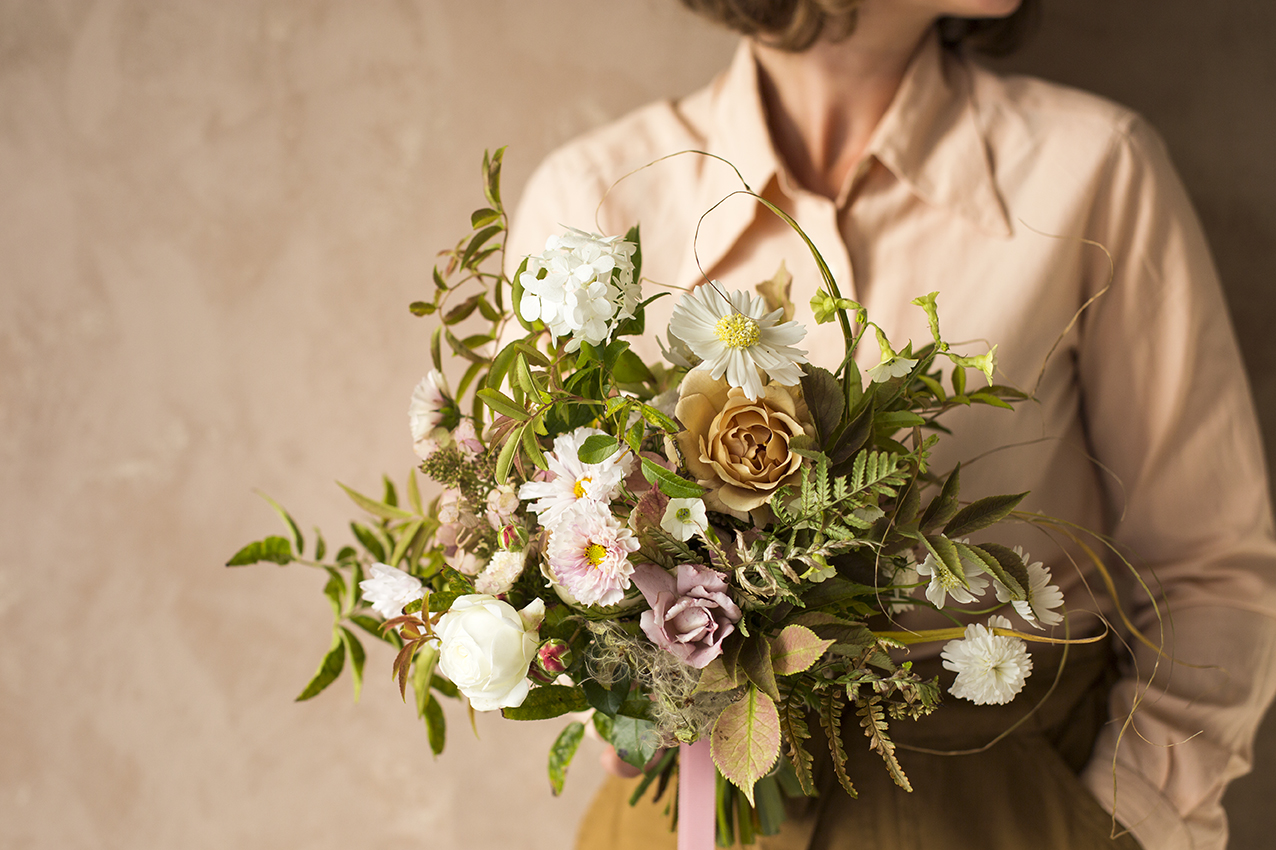
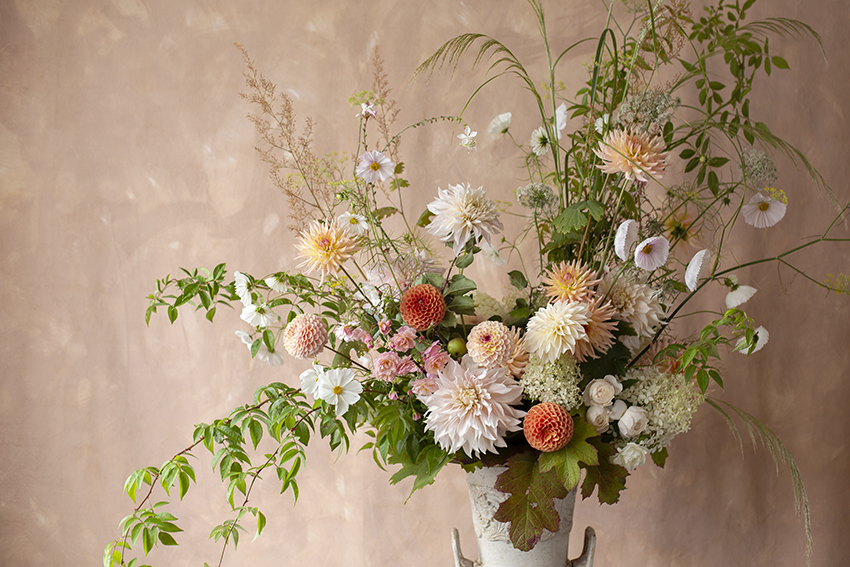
What are the biggest misconceptions about being a career florist?
Maths and the fact that so much of your time is actually spent on a computer.
What are your greatest strengths?
We’re proud of our work but we constantly criticise ourselves and strive to be better – I think that’s actually our greatest strength.
As an employer, what do you look for in employees when hiring?
We have one full time employee in the studio and work with a small group of freelancers for events. It is almost always so much more about who our employees are as people and how they fit into the dynamic of the team than their level of experience with flowers.
Having said that, a natural flair for design and a sensitivity towards plants and flowers goes a long way in our studio. If you’re sending your CV, don’t forget to send images too – it doesn’t have to be a perfect portfolio, just enough to show that you have a genuine passion for arranging flowers. A clean driving license is a big plus, and it goes without saying a positive attitude and desire to muck in wherever needed.
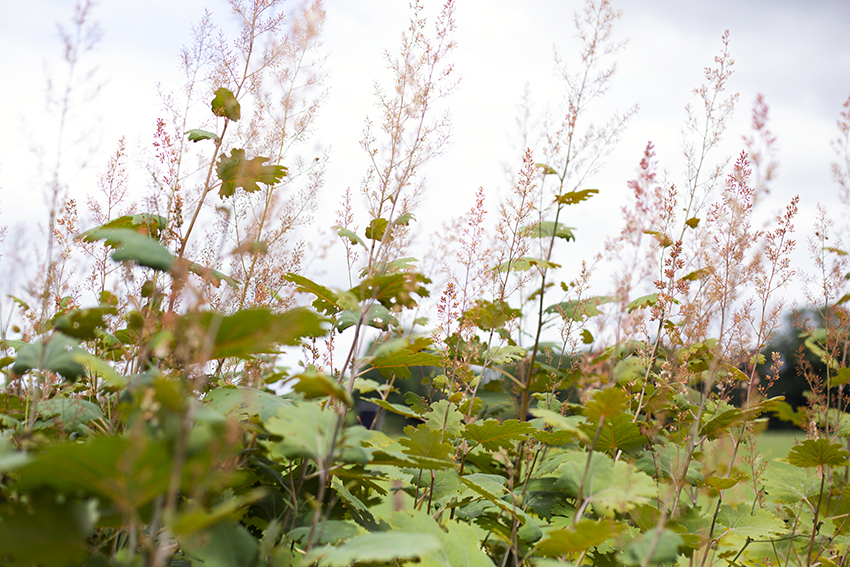
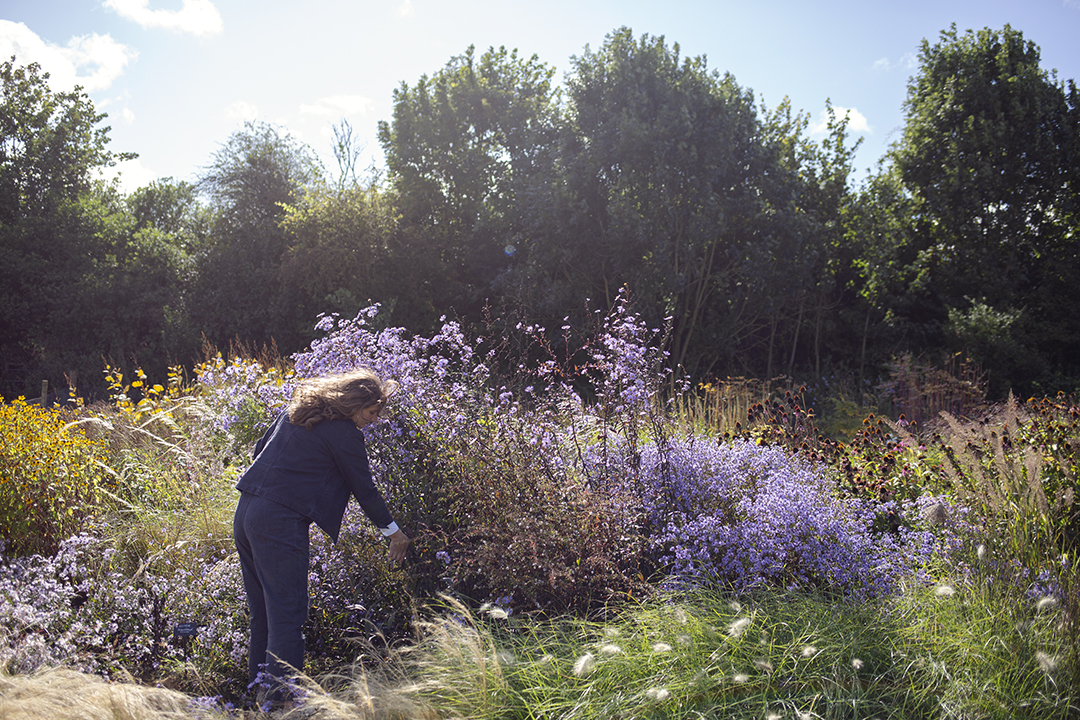
Your thoughts on social media?
We started the business using social media as a tool for inspiration and learning. Now that we are an established business, we use it for marketing and as the quickest, most immediate way to display our work to students and clients.
The word ‘sustainability’ in floristry is getting a good run – what does sustainability mean to you in relation to your business practice?
We’ve been thinking about this (and discussing it!) a lot recently. I don’t think it’s necessarily a bad thing if the word (maybe a little like the word ‘organic’?) gets tossed around a little. So long as it’s not deliberately being misused it’s more than likely going to be a step in the right direction, which can only be a good thing.
We use the word ‘sustainable’ in our marketing. I think we feel strongly that if we don’t, and, say, a flower delivery company using produce flown in from the other side of the world, treated with chemicals, and wrapped in plastic does – then what does that leave us with to communicate to our customers?
We grow (or source locally) around 90% of the materials that we use for our events and classes throughout the year, we do this without the use of chemicals or pesticides. We compost waste and we use re-use mechanics for our arrangements. We use the word ‘sustainable’ as shorthand language to convey these key points to our customers because we know from experience that most of them, whether brides or customers ordering deliveries, will have very little knowledge of the industry, of where flowers come from and how they are grown etc. Our students are probably more likely to know and be interested in the topic, which is why education and sharing how we take a more sustainable approach to our work is so important.
It also means we hold ourselves accountable – there is endless room for adaptation, for learning and questioning how we do things.
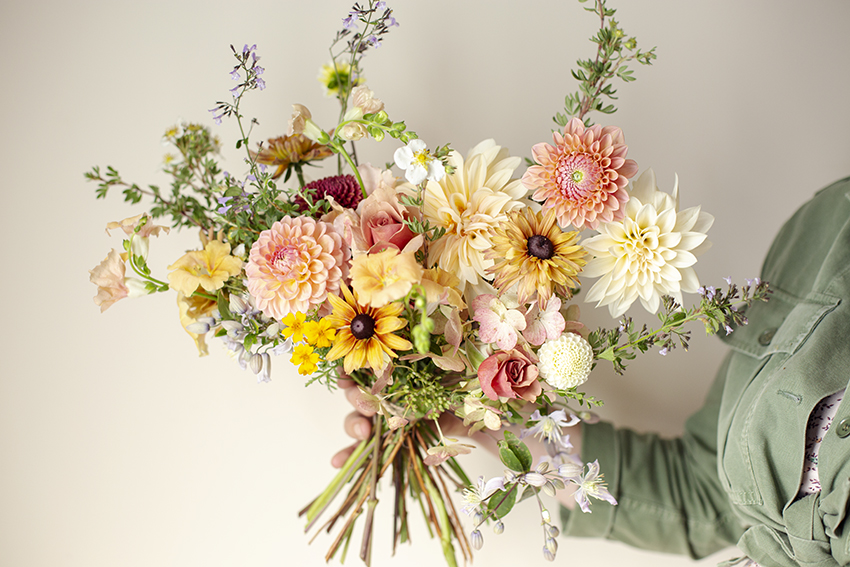
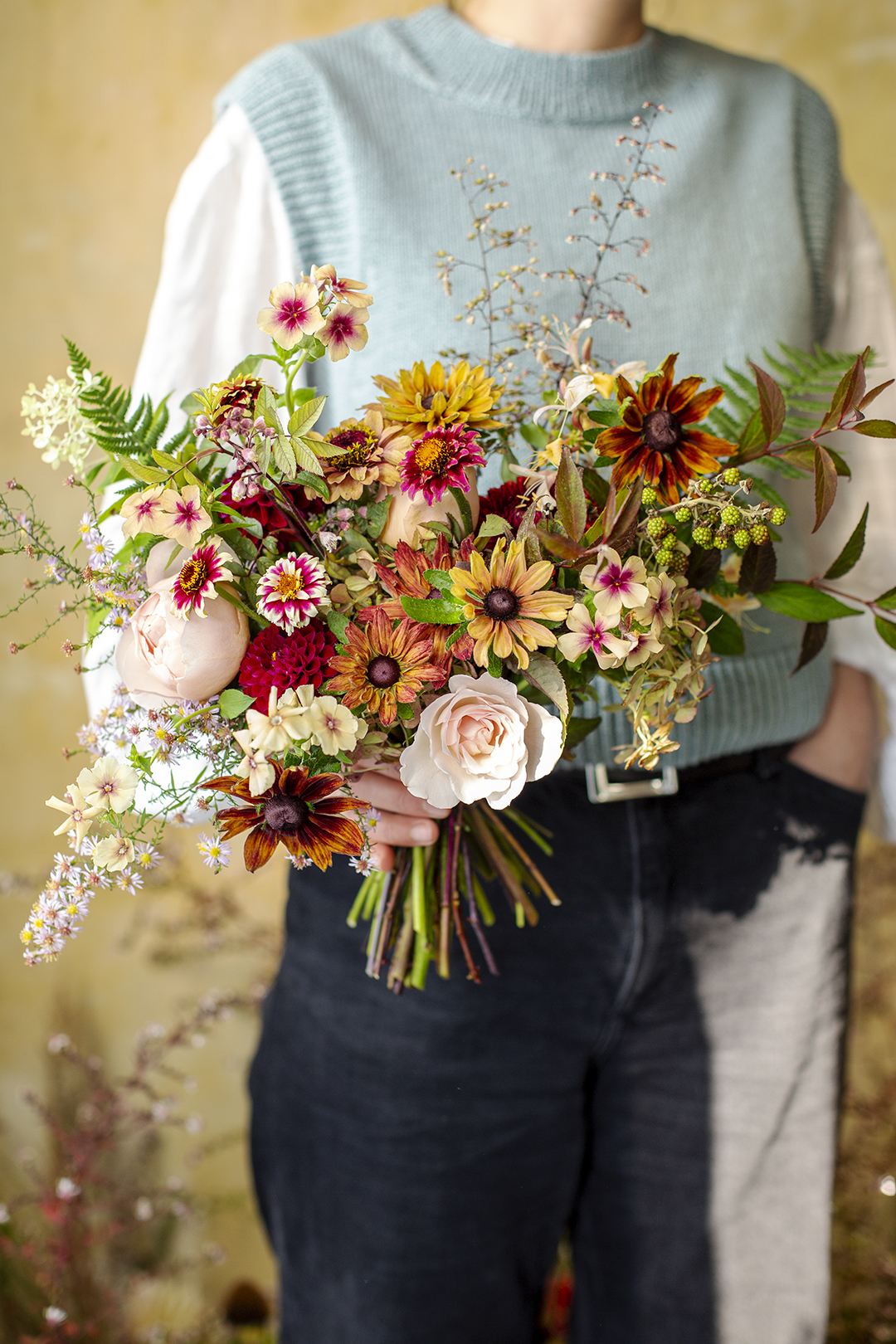
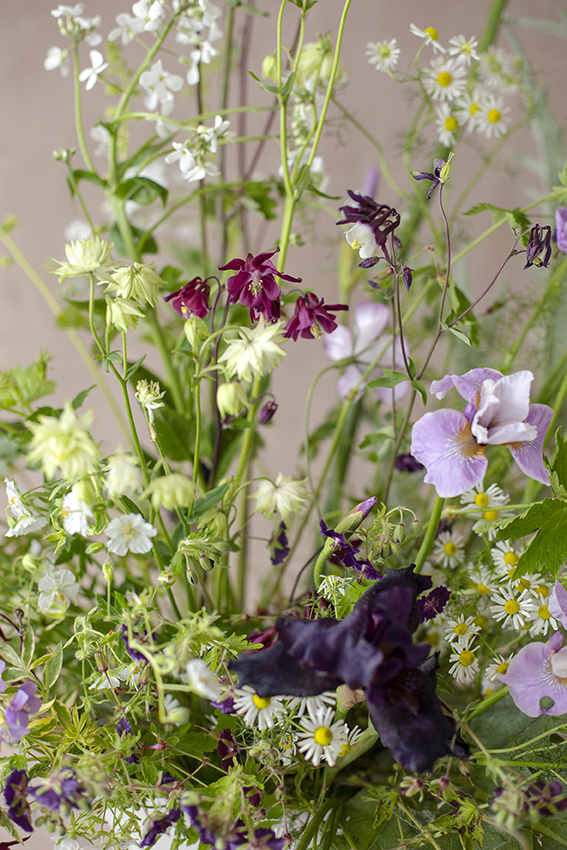
What’s in your toolbox? What are your top 5 tools?
Japanese kenzans and snips
Wire cutters (saves your snips)
Great Dixter planting spade (saves your back)
Kettle (to boil water for searing)
Our custom-designed leather holster
What attitudes do you think need to change – for both florists and consumers?
Switching over to sustainable methods or changing where you are sourcing your flowers isn’t an instant option for most florists, so we are probably looking at small changes initially. Let’s not forget that all these decisions affect the bottom line, which is a difficult decision for business owners to make in an industry which isn’t exactly famous for making money.
We are really interested to see what effect larger businesses can have by making these changes and putting the message out there – the delivery companies but also florists specialising in larger events – this is where it will really make a difference.
In truth it is probably much easier to start a new business based on sustainable principles – which is why education is so important and encouraging new businesses to do things differently from the outset.
I think consumers will become more interested and aware the more sustainable businesses they see and the more they see the messaging. It’s not a far cry from the attitude many people now take towards food and (to a lesser extent) clothing – questioning provenance, waste, labour etc – hopefully many consumers may already be primed for adjusting their attitude to flowers.

